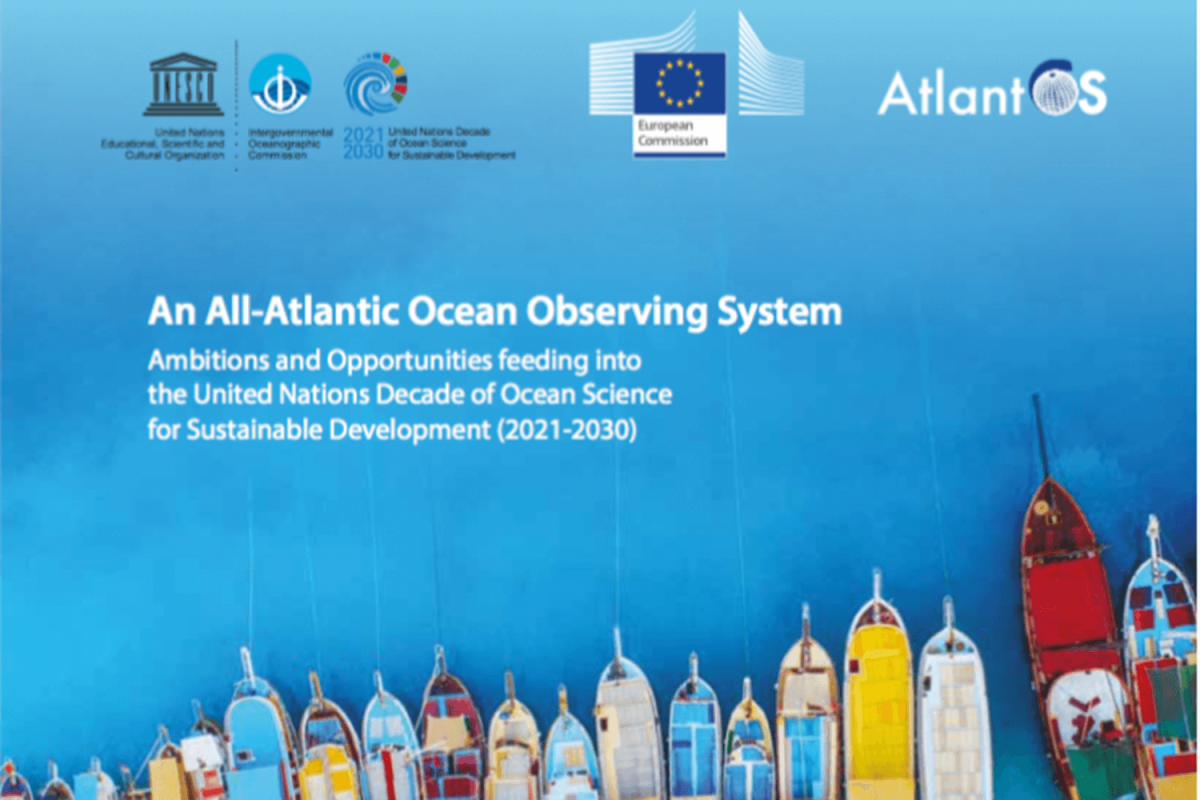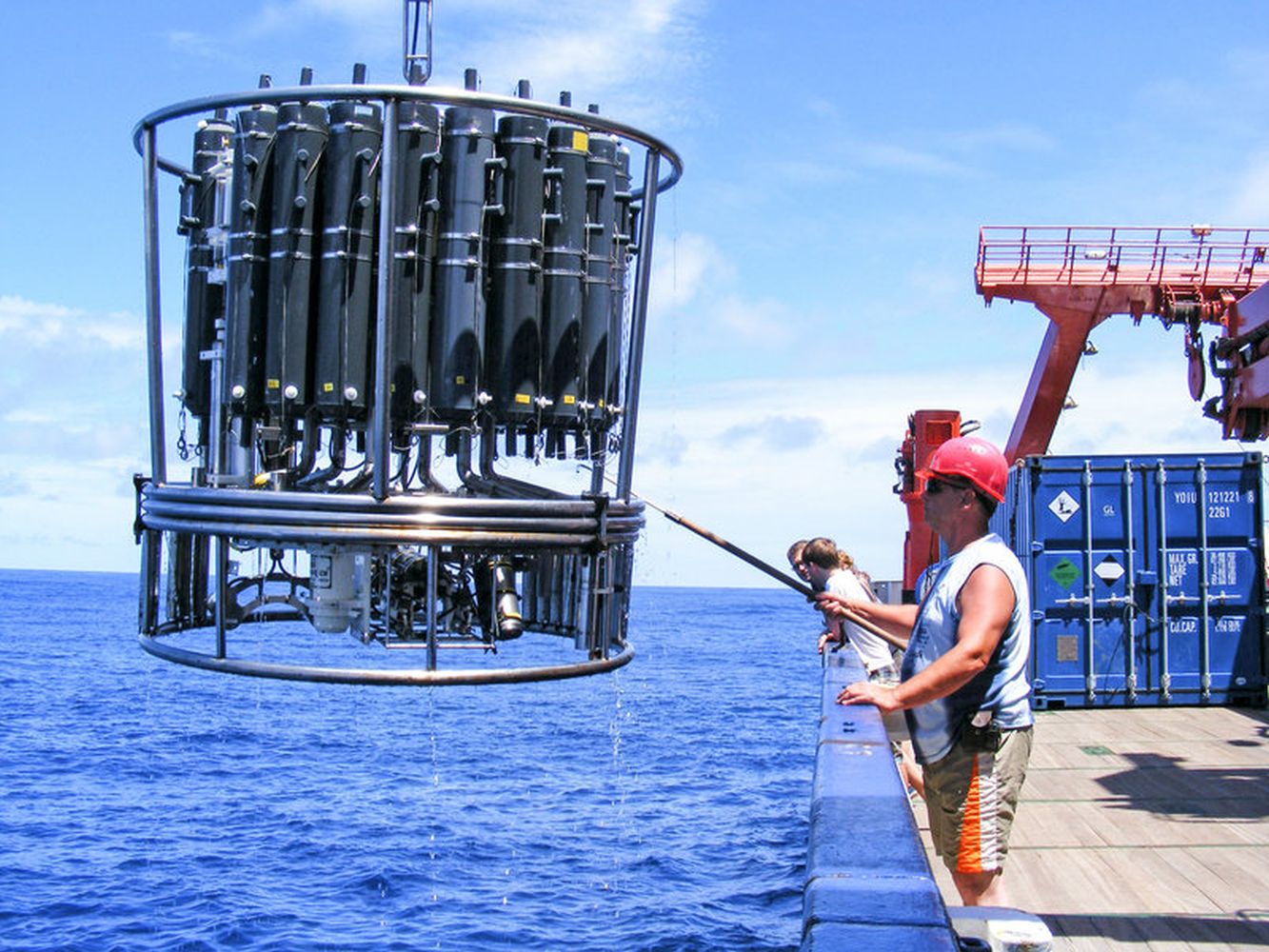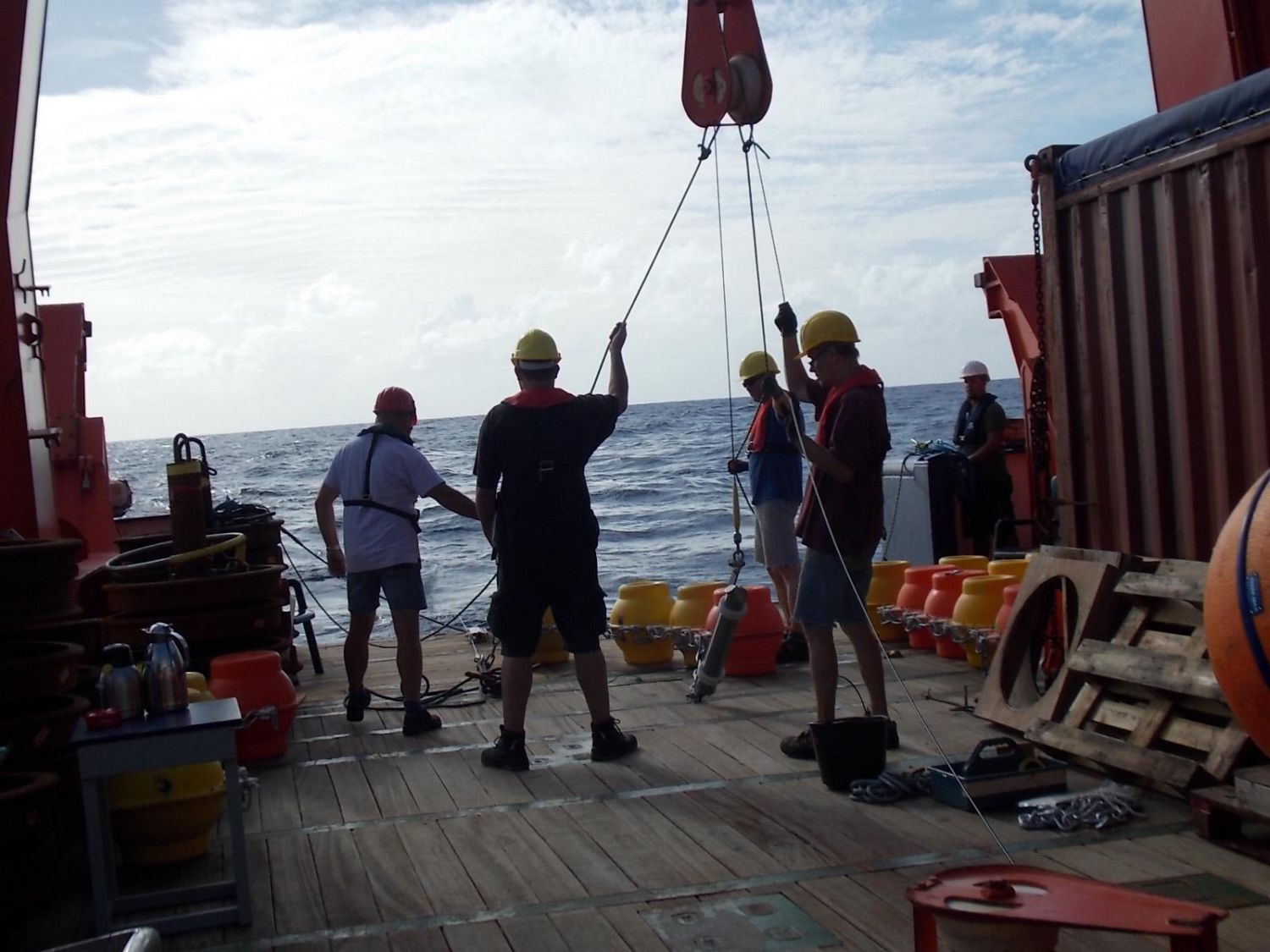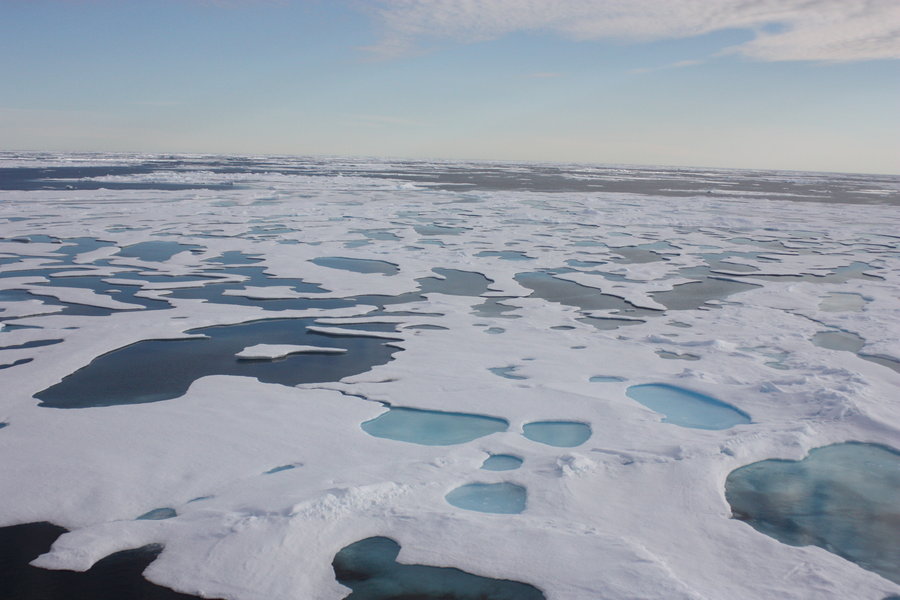We still have too few ocean observations. In particular we lack good, long timeseries, data from the deep sea and data on the biology and biochemistry of the ocean. Although the Atlantic is one of the ocean basins with a higher coverage compared to other regions, there are still many gaps where we have no or limited data. One goal of the EU-Horizon 2020 Project on "Optimizing and Enhancing the Integrated Atlantic Ocean Observing System" (AtlantOS) was to enhance the observing system in the Atlantic Ocean by transitioning from a loosely-coordinated set of existing ocean observing activities producing fragmented, often monodisciplinary data, to a sustainable, efficient, and fit-for-purpose Integrated All-Atlantic Ocean Observing System.
"Today we celebrate the launch of the international All-Atlantic Ocean Observing System programme that connects countries from around the Atlantic Basin and observing efforts from south of the Arctic Ocean to the Atlantic Sector of the Southern Ocean," states Professor Dr. Martin Visbeck from GEOMAR Helmholtz Centre for Ocean Research Kiel, Germany.
"The implementation of this ambitious AtlantOS programme is the product of the Atlantic cooperation developed to respond to the urgent needs of our Atlantic communities. It is embedded in two international policy agreements signed by the EU with international partners: the Galway Statement on Atlantic Ocean Cooperation with the USA and Canada and the Belém Statement on Atlantic Ocean Research and Innovation Cooperation with South Africa and Brazil" remarks John Bell from the European Commission and funder of the EU-Horizon 2020 Project. "We look forward to working with our EU member states and supporting these efforts in the new 'Horizon Europe' research and innovation framework."
"Ocean observing and data and information gathering is the foundation for sound ocean science and ocean understanding" remarks Prof. Peter Haugan, Programme Director at Institute of Marine Research of Bergen University and Chair of the Intergovernmental Oceanographic Commission, "Efforts such as AtlantOS will provide critical data and information to the UN Decade of Ocean Science for Sustainable Development (2021-2030), with its vision to - develop scientific knowledge, build infrastructure, and foster partnerships for a sustainable and healthy ocean."
"A project such as AtlantOS, with so many partners, posed many challenges", states Professor Dr. Martin Visbeck from GEOMAR Helmholtz Centre for Ocean Research Kiel, Germany, who coordinated the project. "Nonetheless, it was a unique opportunity to significantly advance ocean observing in the Atlantic", Visbeck continues. The goal was not just to make more measurements but also to advance observational technologies, to better coordinate and integrate existing observing networks and data systems and to establish a broader All-Atlantic Ocean Observing System with a long-term perspective, Prof. Visbeck explains.
"The symposium will bring stakeholders from across the ocean community to articulate and refine the joint All-Atlantic ambition for ocean observing. It will provide input to the G7-Ocean group, the International OceanObs' 19 Conference and the United Nations Decade of Ocean Science for Sustainable Development (2021-2030), according to scientific coordinator of AtlantOS", Dr. Anja Reitz from GEOMAR. About 200 participants from 20 countries will attend the symposium, held at UNESCO headquarters in Paris France from 25-28 March.
"We want to showcase achievements to better integrate existing data sets and improvements in international coordination of measurements. Of course, a 4-year programme can only be a starting point. The legacy of our project lies in a long-term strategy and perspective, for a basin-scale AtlantOS Program", Martin Visbeck points out. AtlantOS the project has already contributed in a significant way to international programmes such as Global Ocean Observing System (GOOS), a major component of the Group on Earth Observations (GEO), its Global Earth Observation System of Systems (GEOSS), and specifically its emerging "Oceans and Society: Blue Planet" initiative.
"Ocean observations are key to better understand ocean processes such as natural climate variations and climate change, future development of the marine ecosystem, the sustainable use of ocean resources and for the protection against marine hazards. Without observational data, we will not be able to understand these processes nor to develop plans to protect our ocean which is essential and indispensable to our global ecosystem and economy", Professor Visbeck concludes.
Links:
https://www.atlantos-h2020.eu AtlantOS Website
https://www.atlantos-h2020.eu/first-international-atlantos-symposium AtlantOS Symposium Website
https://ec.europa.eu/research/iscp/pdf/galway_statement_atlantic_ocean_cooperation.pdf Galway Statement
https://ec.europa.eu/research/iscp/pdf/belem_statement_2017_en.pdf Belem Statement
https://www.youtube.com/watch?v=KySJYWPOtPk Video about AtlantOS
Contact:
Dr. Andreas Villwock (GEOMAR, Communication & Media), Phone: +49 431 600-2802
presse@geomar.de
…



